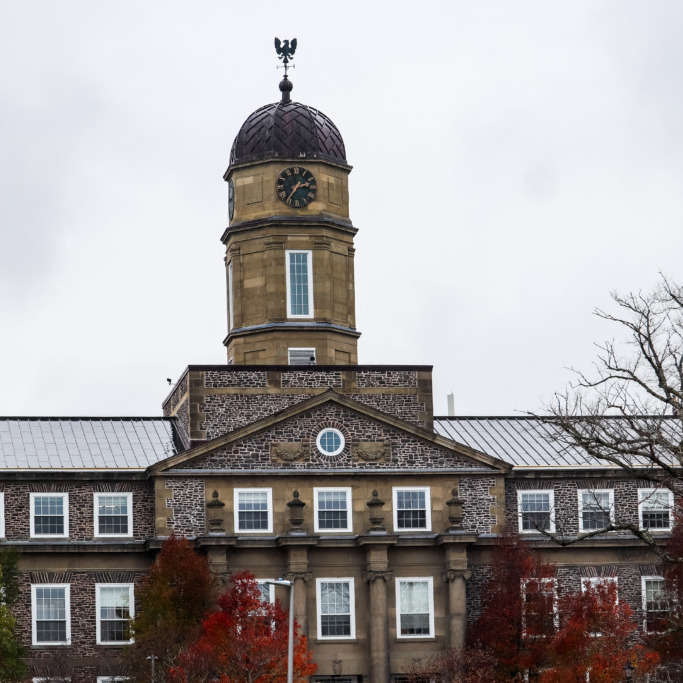
CUPE members say Dalhousie deal is a ‘stepping stone’
CUPE 3912 signed a new collective agreement with Dalhousie on Oct. 20
Dalhousie University reached a new deal with the union representing its nearly 1,000 part-time academics and teaching assistants, over a year after the previous collective agreement expired.
Executive members of the Canadian Union of Public Employees Local 3912 say it’s a good deal, but they’re already preparing their return to the bargaining table.
“It’s important for us to be as proactive as possible in anticipating what’s coming and how the collective agreement can be a progressive contract and not a vestige of the past,” says Lauren McKenzie, CUPE 3912 president.
“We’re already preparing our proposals for the next one.”
The newly signed deal will take effect retroactively from August 2024 and will expire in August 2027.
“The parties would like to extend their appreciation to all bargaining team members who volunteered their time to be involved in this important process,” said Grace Jefferies-Aldridge, Dalhousie’s vice-president of people and culture, in a release on Oct. 20 following the signing of the agreement.
The university did not respond to the Dalhousie Gazette’s multiple email requests and phone calls for comment on its negotiations with the union prior to publication.
Union members were putting the finishing touches on picketing signs in anticipation of a strike when CUPE 3912’s bargaining unit signed a collective agreement with the university’s board of governors on Oct. 20.
85.5 per cent of the union’s 839 members who voted agreed to sign the deal, which was officially ratified on Oct. 30.
“I absolutely see it as a stepping stone,” says Larissa Atkison, the vice-president of Dalhousie part-time faculty for CUPE 3912.
“We wanted a deal that would lift all members up, where everybody would walk away with a significant gain.”
Teaching assistants
Teaching assistants will receive retroactive pay for their work from September at an increased rate of $34 per hour, up from $30.05. The collective agreement does not include any retroactive pay from September 2024 to August 2025.
Teaching assistants’ wages are set to increase to $35.11 in September 2026.
Marker and demonstrator positions will be “reclassified” as teaching assistants next fall, according to Holly Hanes, the vice-president of Dalhousie teaching assistants at Sexton Campus for CUPE 3912. The two positions are currently being paid $25.59 per hour.
“[Markers and demonstrators] will be doing the duties of a teaching assistant, but most folks were doing them anyway,” she says. “It was a huge win for us.”
Hanes says the union members’ reaction to the agreement has been “pretty positive,” particularly surrounding wage increases.
“We’re really starting to see our members be valued for their work.”
Starting in September 2026, teaching assistants will be placed on an annually updated “priority list” within each department, school or program based on the number of credit hours they’ve assisted since September 2023.
According to Hanes, the priority list will provide teaching assistants with increased job security by giving them the opportunity to retain their positions based on their amount of prior experience. Applicants will be offered positions based on the number of priority points they have relative to other candidates.
Under the current agreement, part-time academics and teaching assistants don’t have access to health benefits, outside of the benefits that are provided to students through the Student VIP health plan that is included as student fees in their tuition.
“While we’re thrilled that this deal was ratified, and it was a good deal, it still leaves some room to improvise and grow for the next time.”
Part-time academics
Under the new deal, part-time academics who have taught less than 14 standard three-credit courses will now earn $8,260 per three-credit course; those who have taught more than that will earn $9,034.38.
They will receive retroactive payment from September 2025 to the ratification of the new agreement.
Part-time academics are hired by the university as contract workers to teach a particular number of courses. They tend to work fewer hours than a full-time faculty member and are not given their own offices on campus.
In the final year of the previous collective agreement, part-time academics who taught less than 14 three-credit-hour courses at Dalhousie earned $6,478 per course. Those who taught more than 14 three-credit-hour courses received a stipend of $7,218.50 per course.
Part-time academics will not receive a pay raise in September 2026.
Atkison says increased job security and health-care benefits are two “huge items” the union will push for in the next collective agreement. The bargaining unit proposed a job security package during negotiations that the university was “not prepared to move” on.
Part-time academics now have access to a $20,000 fund to be used towards training, materials and support related to teaching and academic practices. Each academic is eligible to apply for up to $1,000 of the funding.
Previously, there was $5,000 available, with a $500 limit per application. Atkison says the increase in funding is something many part-time academics are “pretty excited” to use.
“This was one way of at least addressing, or putting a bandage on, some of those [job security] issues.”






